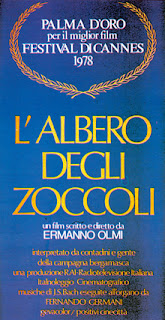Roberto Benigni masterpiece released in Italy
The triple Oscar-winning movie La Vita è Bella, which became better known by its English title Life is Beautiful, made its debut in front of Italian cinema audiences on this day in 1997.
Life is Beautiful is remembered as
a modern cinematic masterpiece
Co-written, directed and starring the Tuscany-born actor Roberto Benigni, the film was released in the United States in October 1998 and in the United Kingdom in February 1999.
At the Academy Awards in March 1999, it received nominations in seven categories, winning three of them, including Best Actor for Benigni, who joined Anna Magnani and Sophia Loren as the only Italians to win Oscars in the two leading actor categories.
Life is Beautiful, which played to English-language audiences in the original Italian but with English subtitles, also picked up the Oscar for Best Foreign Language Film, while composer Nicola Piovani won for Best Original Score.
In total, the film won 22 awards at film festivals around the world, including the Grand Prix at the Cannes Film Festival, a BAFTA for Benigni as Best Actor in a Leading Role, and no fewer than nine David di Donatello awards, considered to be the Italian equivalent of the Oscars.
These included Best Cinematography for Tonino Delli Colli, his fourth David di Donatello in a career spanning more than 50 years that saw him work extensively with the writer and director Pier Paolo Pasolini as well as Sergio Leone, Federico Fellini and many other greats of Italian cinema history.
Life is Beautiful was marketed as a comedy-drama, although as the story of an Italian-Jewish bookshop owner in Arezzo seized and taken to a concentration camp by the Nazis, along with his wife and four-year-old son, its subject matter is hardly light-hearted.
The comedy is created by the sense of fun and jollity in Benigni’s character, Guido, as he woos his future wife, Dora - played by Nicoletta Braschi, who is married to Benigni in real life - during the first part of the story.
.jpg) |
| Roberto Benigni's comic acting talent came to the fore in his portrayal of Guido |
Guido somehow convinces Giosuè that their stay at the camp is actually a complicated game in which he must perform different tasks, earning points in the process, and that the first to reach 1,000 points wins the prize of a tank. He is told that if he cries, pines for his mother - who is forced to stay in another part of the camp - or says that he is hungry, he will lose points, while quiet boys who hide from the guards earn extra points.
He manages to maintain the pretence for his son’s sake almost to the point of liberation by the Allies, with Giosuè believing that the Sherman tank that leads a unit of American soldiers into the camp to free the prisoners is the prize his father promised he would win.
Despite its difficult storyline, Life is Beautiful was enormously successful, winning public acclaim as well as the approval of critics. Produced on a budget of €12.8 million (approx $15 million, £11 million), it achieved gross earnings of $230.1 million (€196 million, £173 million), which made it one of the highest grossing foreign language films in cinema history.
 |
| Nicoletta Braschi starred opposite her husband |
He reportedly based the names of the protagonists on Dora De Giovanni and Guido Vittoriano Basile, the aunt and uncle of Nicoletta Braschi. Guido was arrested for anti-fascist activities during World War II and subsequently died in the Mauthausen concentration camp.
Benigni, the first to win the Oscar for Best Actor with a performance in a foreign language, became almost a national hero in Italy, his own exuberance at the Academy Awards ceremony, where he climbed over the back of seats to receive the award on stage from screen icon Loren, attracting almost as much attention as the film itself.
In the context of Italian cinema history, Life is Beautiful has been placed by some commentators alongside Vittorio De Sica’s 1948 neorealist classic Bicycle Thieves and Fellini’s 1960 masterpiece La dolce vita among films that have reshaped international perceptions of Italian big-screen artistry.
Travel tip:.jpg)
Arezzo's famously sloping main square, Piazza Grande,
featured in several scenes in Life is Beautiful
Much of the location shooting in the first part of Life is Beautiful took place in Arezzo, the city in Tuscany. Situated at the confluence of four valleys - Tiberina, Casentino, Valdarno and Valdichiana – its medieval centre suffered massive damage during the Second World War but a remarkable number of monuments, churches and museums survived, and the city recovered to be one of the most prosperous in Tuscany. Arezzo’s main sights include the Basilica di San Francesco, with its beautiful frescoes by Piero della Francesca, the central Piazza Grande, with its sloping pavement in red brick and the setting for several scenes, the Medici Fortress, the duomo and a Roman amphitheatre. Arezzo’s original duomo was built on the nearby Pionta Hill, over the burial place of Donatus of Arezzo, who was martyred in 363. In 1203 Pope Innocent III had the cathedral - dedicated to Saints Donato and Pietro - moved within the city's walls, to the current site in another elevated position a short walk from Piazza Grande. The construction of the current structure started in 1278 and continued in phases until 1511, although the façade visible today, designed by Dante Viviani, was not completed until 1914, replacing one left unfinished in the 15th century. The interior contains several notable artworks, including a relief by Donatello, entitled Baptism of Christ, and a cenotaph to Guido Tarlati, lord of Arezzo until 1327, said to be designed by Giotto, near to which is Piero della Francesca's Mary Magdalene. The wooden choir of the Grand Chapel was designed by Giorgio Vasari.
Stay in Arezzo with Expedia
Travel tip:
The colonnaded front of Terni's main church,
the Cattedrale di Santa Maria Assunta
The concentration camp scenes in Life is Beautiful were filmed mainly at an abandoned factory, adapted for the purpose, near the city of Terni in Umbria, about 82km (49 miles) south of the region’s capital, Perugia. Terni, originally a Roman settlement, of which some remains still exist, including the Cascata delle Marmore, a spectacular 165-metre man-made waterfall. In the medieval period, Terni became associated with Saint Valentine, a former bishop of Terni martyred by the Romans, probably in the fourth century. He was adopted as Terni’s patron saint, his ashes kept in an urn under the main altar of the present Basilica di San Valentino, in Viale Papa Zaccaria, giving rise to Terni becoming known as the City of Love. Terni’s main church, though, is the Cattedrale di Santa Maria Assunta, with its wide portico along the front and eight statues of former bishops of Terni, including the aforementioned San Valentino. In the 19th and 20th centuries, Terni developed into a major steel-producing hub and today the city balances its industrial character with cultural heritage and natural attractions, making it both a working city and a tourist destination.
Search for Terni hotels with Hotels.com
More reading:
How Life is Beautiful rocketed Roberto Benigni to fame
The five-year-old who captivated audiences with his portrayal of Giosuè
A real-life Holocaust survivor spared while her family perished
Also on this day:
69: The death of Roman emperor Aulus Vitellius
1676: The birth of San Leonardo da Porto Maurizio
1856: The death of Sicilian patriot Francesco Bentivegna
1947: The birth of singer and TV presenter Gigliola Cinquetti
1948: The birth of journalist Giuliana Sgrena
.jpg)






_(cropped).jpg)
.jpg)



.jpg)
.jpg)




